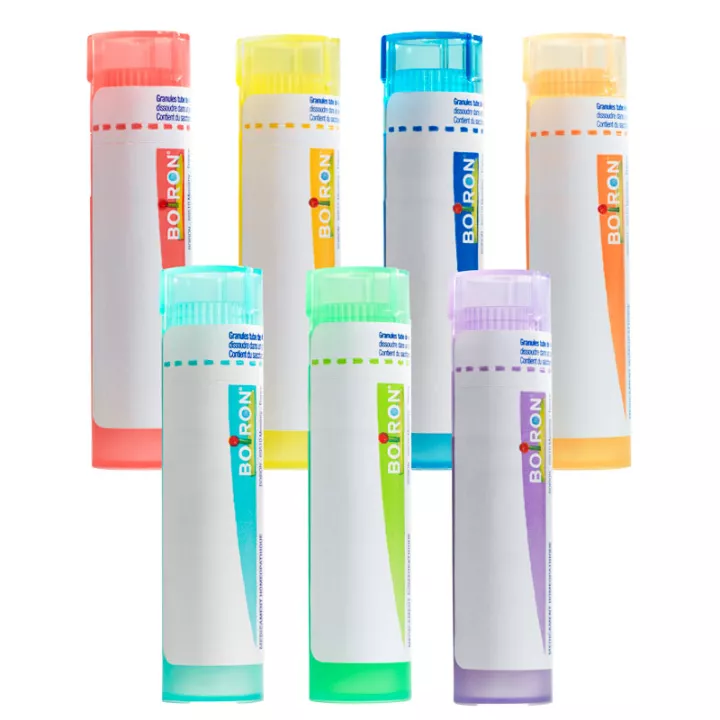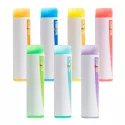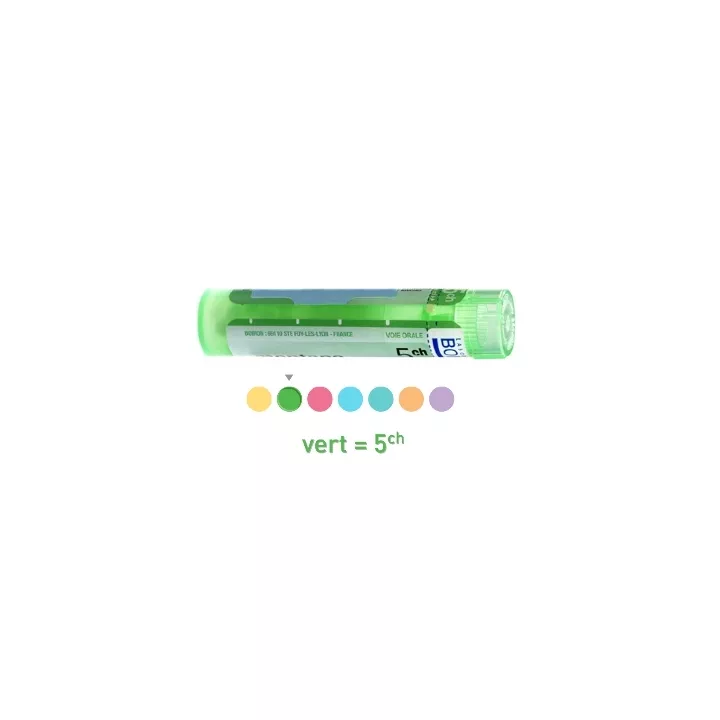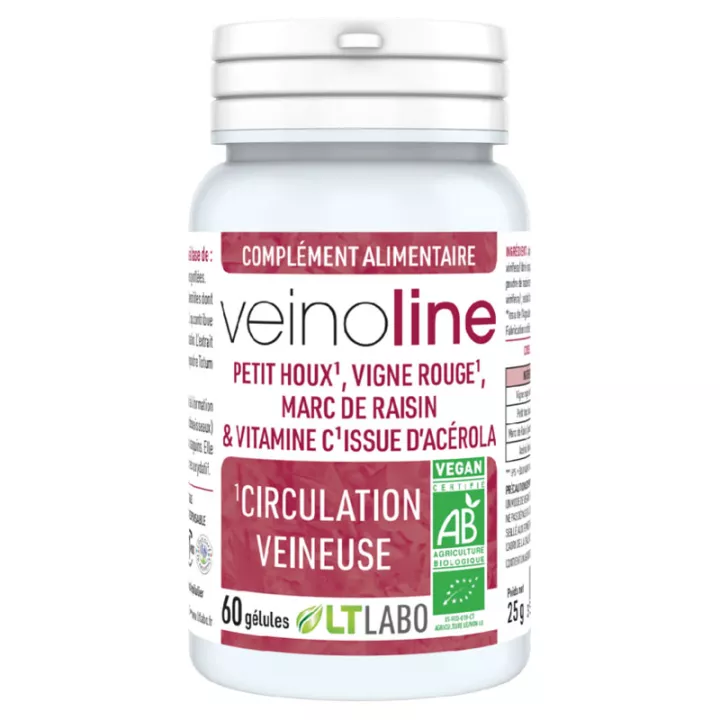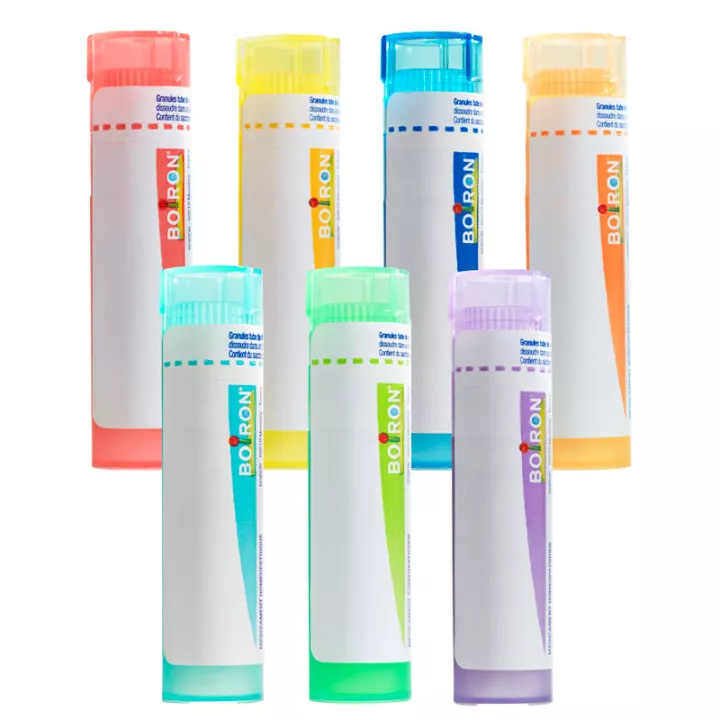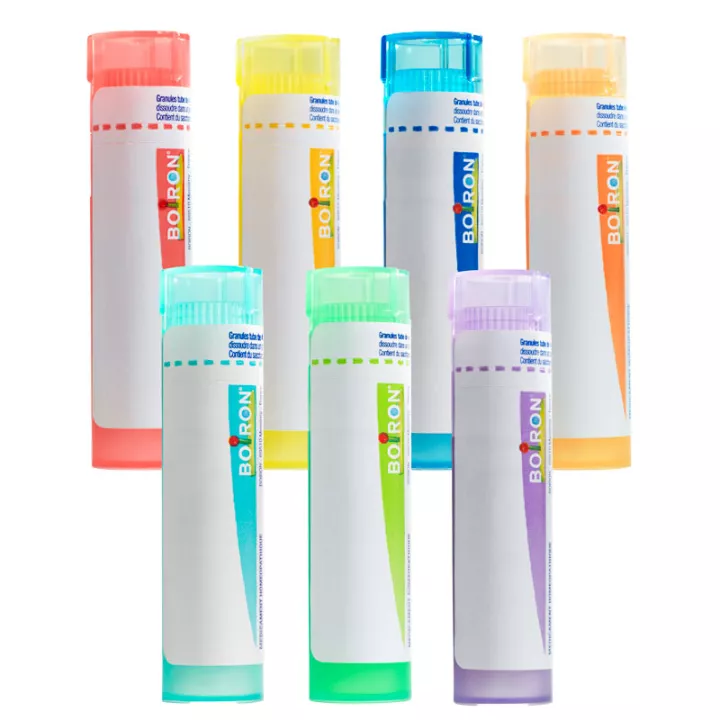Cupressus Sempervirens Boiron: Homeopathic Treatment for Coughs, Hemorrhoids and Varicose Veins
Cupressus Sempervirens 4CH, 5CH, 7CH, 9CH Boiron homeopathic granules
Cupressus Sempervirens illustrates the holistic approach of homeopathy, which values the benefits of plants to promote health and well-being. By exploiting the properties of Common Cypress, this homeopathic remedy offers a natural option for the treatment of various venous and respiratory disorders, underlining the importance of the individualized approach in homeopathic care. As with any homeopathic intervention, it is advisable to consult a qualified healthcare professional for appropriate and safe use.
Discover Cupressus Sempervirens by Boiron, a homeopathic remedy for the relief of dry coughs, hemorrhoids and vascular disorders such as varicose veins and heavy legs. Opt for a natural, gentle approach to your health.
Indications and dosage
Homeopathic medicines in tubular granules or globular doses can be used for a variety of symptoms, so it's not possible to determine the indications and dosage of a specific preparation. The homeopathic physician selects the appropriate medicine, dilution and dosage according to the patient's state of health and characteristic symptoms.
Soothing Dry Coughs in O.R.L.
Cupressus Sempervirens, offered by Boiron, is a homeopathic medicine renowned for its effectiveness in treating dry coughs. By acting directly on the respiratory tract, it helps soothe coughs, offering welcome natural relief. Its gentle formulation makes it suitable for those seeking an alternative to conventional treatments to manage their ENT symptoms naturally.
Hemorrhoid relief in Gastroenterology
In gastroenterology, Cupressus Sempervirens is also used for its beneficial action on hemorrhoids. By helping to reduce inflammation and soothe pain, this homeopathic remedy promotes greater comfort and a reduction in the symptoms associated with hemorrhoids, making daily life easier for those affected.
Natural Treatment of Varicose Veins and Heavy Legs in Angiology
In the field of angiology, Cupressus Sempervirens plays an important role in the treatment of varicose veins and the sensation of heavy legs. By improving blood circulation and reducing inflammation, it helps relieve symptoms, offering natural support to maintain good vascular health and improved well-being.
Directions for use
Remove tab, invert tube and pull cap slightly.
Twist the tube to drop the desired number of granules into the cap, then place the granules under the tongue.
Do not touch the granules or globules with your fingers.
The globules in the dose tubes are absorbed in one go, dissolving slowly under the tongue. If no dose is available, take 10 granules of the same dilution.
Do not take astringent substances such as coffee, tobacco, camphor, mint or chamomile within half an hour of taking homeopathic medicines.
Use a mint-free toothpaste (such as Homéodent Boiron, which is compatible with homeopathic granules).
How to use Cupressus Sempervirens?
We recommend that you follow the advice of a healthcare professional to determine the dosage and frequency of administration best suited to your condition and symptoms.
Are there any side effects?
Cupressus Sempervirens is generally well tolerated and side effects are rare in homeopathy. Nevertheless, if you experience any unusual reactions, it's advisable to consult a healthcare professional.
Can Cupressus Sempervirens be combined with other treatments?
Yes, Cupressus Sempervirens can often be used in conjunction with other treatments. However, it is always preferable to discuss any combination of treatments with a healthcare professional to ensure there are no interactions.
Packaging and contents
Cupressus Sempervirens, more commonly known as Common Cypress, is a homeopathic strain of plant origin, listed in the French and European pharmacopoeia and registered under number EH00339. This plant is used in homeopathy for its therapeutic virtues, in particular for its beneficial properties on the venous and respiratory systems.
Origin and properties
Common Cypress is a tree in the Cupressaceae family, characterized by its longevity and resistance. It is traditionally used for its astringent, antiseptic and venotonic properties. In homeopathy, Cupressus Sempervirens is prepared from the whole plant, exploiting these properties to offer a natural, gentle treatment.
Availability
Doses and Tubes: Available in doses of 4 CH, 9 CH, 15 CH, and 30 CH, as well as in tubes at dilutions of 4 CH, 5 CH, 7 CH, 9 CH, 15 CH, and 30 CH, Cupressus Sempervirens offers a range of options for tailoring treatment to each patient's specific needs.
Magistral preparations
In addition, Cupressus Sempervirens can be prepared in Hahnemannian dilutions starting at 2 CH. These magistral preparations enable treatment to be precisely tailored to the patient's health conditions, highlighting the importance of individualization in the homeopathic approach.
Therapeutic applications
Cupressus Sempervirens is frequently used to treat venous disorders, such as hemorrhoids, varicose veins and sensations of heaviness in the lower limbs. It can also be beneficial for the respiratory system, notably in the treatment of dry coughs and mild bronchial affections.
Precautions for use
Warning
Contains sacchararose. Keep Cupressus Sempervirens homeopathic medicines away from light, heat, humidity and all sources of fumes and fragrances.
Giving homeopathic granules to babies and children
For Cupressus Sempervirens Boiron granules, dissolve in 100ml of water. As the granules take a very long time to dissolve, you'll need to prepare your mixture in advance.
Homeopathy and pregnancy
Homeopathic medicines have no chemical toxicity, no contraindications, no interaction with other drugs, and no adverse effects linked to the quantity of product ingested. Pregnant women can use homeopathic remedies without any known risk to themselves or their unborn child, but it is advisable to seek advice.
Frequency of homeopathic use
For acute conditions, we recommend taking the homeopathic remedy Cupressus Sempervirens Boiron every hour until symptoms improve. From then on, take them 3 or 4 times a day, spacing them out, then stop gradually.
For chronic conditions, low-dilution remedies (> 9CH) should be taken 1 or 2 times a day, while long-acting remedies should be taken once a week, or even once a month. This decision is left to the homeopath.
What to do if there is no improvement within 24 hours
Certain pathologies cannot be treated with homeopathy simply by self-medication. Their severity requires medical advice from a homeopathic doctor. This doctor will judge whether your condition can be treated with homeopathy alone, or whether your treatment needs to be supplemented with allopathic medicine.

